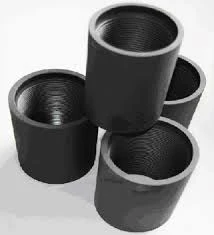- Afrikaans
- Albanian
- Amharic
- Arabic
- Armenian
- Azerbaijani
- Basque
- Belarusian
- Bengali
- Bosnian
- Bulgarian
- Catalan
- Cebuano
- Corsican
- Croatian
- Czech
- Danish
- Dutch
- English
- Esperanto
- Estonian
- Finnish
- French
- Frisian
- Galician
- Georgian
- German
- Greek
- Gujarati
- Haitian Creole
- hausa
- hawaiian
- Hebrew
- Hindi
- Miao
- Hungarian
- Icelandic
- igbo
- Indonesian
- irish
- Italian
- Japanese
- Javanese
- Kannada
- kazakh
- Khmer
- Rwandese
- Korean
- Kurdish
- Kyrgyz
- Lao
- Latin
- Latvian
- Lithuanian
- Luxembourgish
- Macedonian
- Malgashi
- Malay
- Malayalam
- Maltese
- Maori
- Marathi
- Mongolian
- Myanmar
- Nepali
- Norwegian
- Norwegian
- Occitan
- Pashto
- Persian
- Polish
- Portuguese
- Punjabi
- Romanian
- Russian
- Samoan
- Scottish Gaelic
- Serbian
- Sesotho
- Shona
- Sindhi
- Sinhala
- Slovak
- Slovenian
- Somali
- Spanish
- Sundanese
- Swahili
- Swedish
- Tagalog
- Tajik
- Tamil
- Tatar
- Telugu
- Thai
- Turkish
- Turkmen
- Ukrainian
- Urdu
- Uighur
- Uzbek
- Vietnamese
- Welsh
- Bantu
- Yiddish
- Yoruba
- Zulu
steel coupling
Understanding Steel Couplings A Comprehensive Overview
Steel couplings are essential components in various mechanical systems, designed to connect two shafts and transmit torque while accommodating misalignment and vibrations. These devices play a crucial role in enhancing the efficiency and functionality of industrial machinery, automotive systems, and other mechanical applications.
Types of Steel Couplings
There are several types of steel couplings, each serving different purposes and applications. The most common types include
1. Rigid Couplings These couplings provide a solid connection between two shafts, ensuring efficient torque transfer. They are ideal for applications where precise alignment is possible, as they do not allow for any misalignment or movement between the connected shafts.
2. Flexible Couplings Designed to accommodate misalignment and shaft movement, flexible couplings are crucial in applications where perfect alignment is challenging to achieve. They can be made from various materials, including rubber and plastics, but steel flexible couplings are also prevalent for high-strength applications.
3. Oldham Couplings These are specifically designed to handle misalignment, allowing shafts to slide relative to one another. They are commonly used in applications where axial movement is expected, such as in robotic systems and conveyor belts.
4. Universal Couplings Universal joints allow for the connection of shafts at varying angles, making them essential in applications where shafts need to be connected despite being positioned at non-linear angles.
Benefits of Steel Couplings
steel coupling

Using steel couplings in mechanical systems brings several advantages
- Strength and Durability Steel is a robust material that can withstand significant forces and stresses, making steel couplings ideal for heavy-duty applications
. They are resistant to wear and can last much longer than couplings made from other materials.- High Torque Transmission Steel couplings excel in transmitting high torque loads efficiently, ensuring optimal performance in demanding applications such as manufacturing equipment, turbines, and automotive engines.
- Temperature and Corrosion Resistance Many steel couplings are treated or plated to enhance their resistance to corrosion and high temperatures, making them suitable for use in harsh environments.
- Versatility Steel couplings are versatile and can be used in myriad applications across various industries, including automotive, aerospace, manufacturing, and construction.
Applications of Steel Couplings
Steel couplings are utilized in a wide range of applications. In the automotive industry, they are commonly found in drivetrains, connecting the engine to the transmission and other components. In industrial machinery, steel couplings link motors to pumps, compressors, and other equipment, ensuring efficient energy transfer and operation.
Conclusion
In summary, steel couplings play a vital role in modern mechanical systems by providing reliable connections between shafts, fostering efficiency, and accommodating misalignments. Their strength, durability, and versatility make them indispensable in various industries. As technology continues to advance, the design and manufacturing of steel couplings will likely evolve, leading to further improvements in performance and applicability. Understanding the different types of steel couplings and their benefits is essential for anyone involved in engineering, manufacturing, or the maintenance of mechanical systems.
-
Tubing Pup Joints: Essential Components for Oil and Gas OperationsNewsJul.10,2025
-
Pup Joints: Essential Components for Reliable Drilling OperationsNewsJul.10,2025
-
Pipe Couplings: Connecting Your World EfficientlyNewsJul.10,2025
-
Mastering Oilfield Operations with Quality Tubing and CasingNewsJul.10,2025
-
High-Quality Casing Couplings for Every NeedNewsJul.10,2025
-
Boost Your Drilling Efficiency with Premium Crossover Tools & Seating NipplesNewsJul.10,2025







